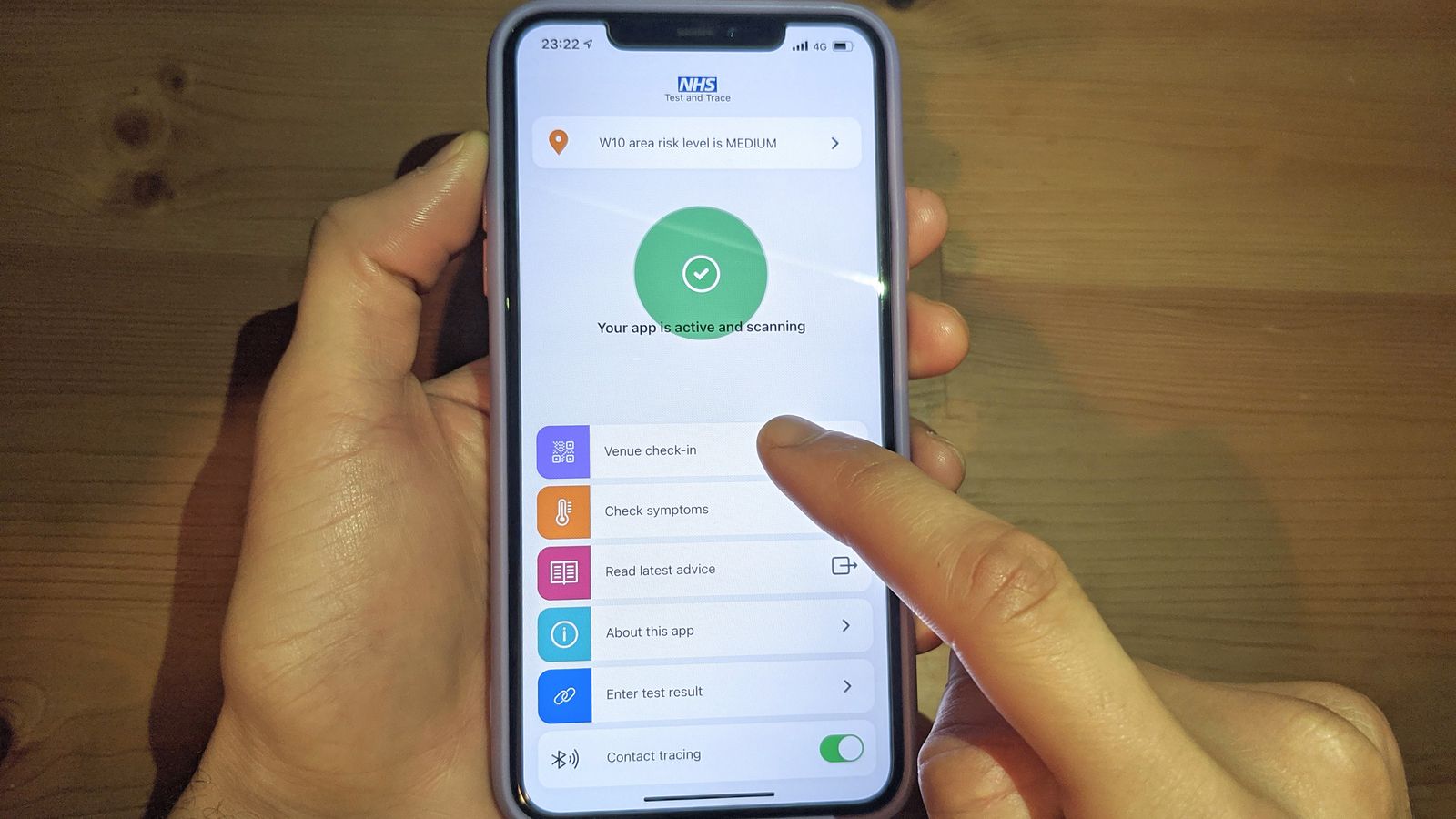An error with the NHS COVID app has left potentially thousands of people unaware that they were exposed to the coronavirus and needed to self-isolate.
More than 19 million people have downloaded the English contact-tracing app since 24 September, but it has had the wrong settings to record whether these people were close enough to each other to transmit the coronavirus.
The revelation comes as Michael Gove told Sophy Ridge on Sunday that England’s month-long lockdown could be extended beyond 2 December.
“Shockingly low” numbers of users have been sent warnings about potential exposures due to the app having the wrong risk threshold set for recording contacts between people, as The Sunday Times first reported.
While the technology should have been recognising people as having been in close enough proximity for a transmission, it had instead recorded that they were too far away for the virus to be passed between them.
Sky News has independently confirmed the issue, and also learnt that a large proportion of the phantom notifications about exposures – which the Department for Health told users to ignore – were actually real.
According to The Sunday Times’ source, Android devices have been the worst impacted – meaning the error has had a disproportionate impact on low-income smartphone owners.
It comes as those who have been told to isolate by the contact-tracing app are not able to claim government financial support, raising fears that low-paid workers will be forced to choose between health and hardship.
The issue was first admitted in a blog post last week which confirmed that although the developers knew the risk threshold needed to be lower than had been originally designed, it had not been updated ahead of the national release.
The government has not disclosed how many people in England have been instructed to self-isolate by the app, but devolved administrations of Scotland and Northern Ireland have allowed authorities to contact 10,000 and 16,000 people respectively.
A spokesperson for the Department for Health and Social Care said its app was “the only app in the world using the latest Google-Apple technology to better gauge distance to identify those most at risk, and is deemed ‘excellent’ by international standards.
“As previously published, we anticipate more app users who are at high risk of having caught the virus will receive a notification to self-isolate, and that will be to everyone’s long term benefit by reducing the chances of those with the virus passing it on to others.”
Analysis: Mounting mistakes mean questions will be asked about leadership
By Rowland Manthorpe, technology correspondent
After a troubled start, the contact tracing app seemed to have found its feet, climbing with some speed to 19 million downloads. Just last week, a senior Department of Health and Social Care source told me they were “very pleased” with its progress.
This latest news calls that progress into question. If the app was sending far too few alerts because its risk threshold was incorrectly set too high, then what protection did it offer? Not none: some alerts were sent. But at a time when protection was desperately needed, the app was not pulling its weight.
I understand that this software error had an incredibly human source. The risk threshold was meant to be changed before the launch but for some reason no-one one made the crucial update. For weeks, Test and Trace carried on as if the change had gone ahead.
Of course these things happen, but in the case of the app they have happened an awful lot. Two weeks after launch it had only sent one alert about a venue. Anyone asked to isolate by it still cannot claim income support even if they are entitled to it.
The news also calls into question the communications from test and trace. For weeks people have been complaining about messages from the app telling them they’ve been near someone with covid-19. First, the Department of Health said there wasn’t an issue, then it released a fix telling people not to worry.
It turns out that because of this error, many of those alerts should have been instructing people to isolate.
Coming at a time when the virus was spreading rapidly, this is a significant error. I understand Matt Hancock and Dido Harding were as much in the dark about this as anyone. Still, questions may be asked about their leadership when mistakes of this kind keep happening.

